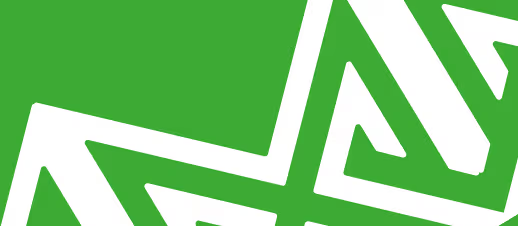TOGAF® Business Architecture Foundation - eLearning (exam included)
750,00 EUR
- 10 hours
This Business Architecture Foundation course draws on the latest TOGAF® Standard, 10th Edition. The course equips participants with a fundamental understanding of TOGAF Business Architecture, enabling them to actively participate in architecture projects or engage with architectural outputs.
Key Features
Language
Course material are in English
Level
Beginner - Intermediate for professionals
Provided by GEL
Accredited by The Open Group
10+ hours course duration
with 5 hours total video content,quizzes and exam practice
Access
6 months access to the eLearning platform 24/7 (works on mobile devices) with full tutor support
Exam included
Exam vouchers included
Exam Re-take
One free resit / re-exam
Certification
Completion of training certification

About the course
Business Architecture (BA) is a subset of enterprise architecture that focuses solely on the business aspects of an organization's structure, including information, processes, and capabilities. The objective, similar to Enterprise Architecture (EA), is to enhance efficiency and return on investment while providing management and stakeholders with the clarity needed to make critical decisions.
This TOGAF® Business Architecture certification training course equips you with a comprehensive understanding of optimizing the Business dimensions of the TOGAF Architecture Development Method (ADM). Upon completion, candidates will be well-prepared to take and pass the TOGAF BA Foundation exam on their initial attempt.
Learning Outcomes
At the end of this TOGAF Business Architecture Foundation eLearning Course, you will be able to:
Key concepts
Fundamental concepts of Enterprise Architecture as defined by the TOGAF Standard.
Terminology
Critical terminology specific to the TOGAF Standard.
ADM
Detailed exploration of the Architecture Development Method (ADM) cycle, including phase objectives and strategies for adaptation and scoping.
Business modelling
The integration of business modelling with Enterprise Architecture within the TOGAF Standard framework.
Techniques
Techniques for depicting business capabilities using business capability maps.
Value stream
Implementation of value streams and value stream mapping.
Business Scenario
Application of the business scenario method within the TOGAF ADM.
Information Mapping
The role of information mapping in Enterprise Architecture and its alignment with the TOGAF Standard.
Organization
The significance of organization mapping in Enterprise Architecture and its support of the TOGAF Standard.
Strategies
Strategies for developing Business Architecture using the TOGAF ADM.
Course timeline

Welcome to TOGAF Business Architecture: Foundation
Module 00
This initial module welcomes participants to the course, outlining its key features, learning plan, objectives, and structure. It provides essential resources including a course guide, diagrams, a glossary, and a compilation of further reading materials and links to download key framework publications.
Introduction and concepts
Module 01
- Chapter 1 provides an executive overview, discussing the Open Group's perspective on Enterprise Architecture and answering fundamental questions such as the necessity of an Enterprise Architecture and the advantages of using the TOGAF Standard.
- Chapter 2 introduces critical concepts of the TOGAF Standard like Architecture Domains, an overview of the Architecture Development Method (ADM), Architecture Abstraction, Architecture Principles, and the Enterprise Continuum.
- Chapter 3 focuses on the structure and functions of a well-maintained Architecture Repository.
- Chapter 4 offers insights into the TOGAF Content Framework and the Enterprise Metamodel.
- Chapter 5 defines EA Capability and discusses the integration of the TOGAF Standard with other frameworks, concluding with an introduction to risk management and gap analysis techniques.
Introduction to the ADM
Module 02
- Chapter 1 outlines the basic structure and key aspects of the ADM.
- Chapter 2 delves into the governance and scoping of Enterprise Architecture.
- Chapter 3 details the objectives and approaches of the Preliminary Phase, Phase A, and Phase B of the ADM, including how iteration is applied.
Business modeling
Module 03
This module defines business models, exploring various representations and detailing the typical components using the business model canvas as an example. It connects business models with Business Architecture and discusses structured approaches to business model innovation according to the TOGAF Standard.
Business capabilities
Module 04
- Chapter 1 introduces business capabilities, describing their definition and components.
- Chapter 2 explains business capability maps, their structure, and the mapping approach.
- Chapter 3 discusses mapping business capabilities to other business perspectives, including heat mapping and relationship mapping techniques.
Value streams
Module 05
- Chapter 1 explains the concept of 'value' within business architecture, the benefits of value streams and different approaches to value analysis.
- Chapter 2 describes the integration of value streams within Business Architecture and how to define and decompose value streams.
- Chapter 3 discusses mapping capabilities to value stream stages and the principles of creating value streams.
Business scenarios
Module 06
- Chapter 1 describes TOGAF business scenarios, their purpose, and benefits, and their application within the ADM.
- Chapter 2 covers the development and validation of TOGAF business scenarios, including the use of business capabilities and value streams.
Information and organization mapping
Module 07
- Chapter 1 explores the concept of information mapping, its impact, benefits, and its relation to Business Architecture and data models.
- Chapter 2 discusses organization mapping, its benefits, and how it differs from organization charts, including its application within the TOGAF ADM.
Applying business architecture techniques within the TOGAF ADM
Module 08
- Chapter 1 explains how Business Architecture concepts like business capabilities and value streams are used in creating the Architecture Vision in Phase A.
- Chapter 2 details the application of these concepts in developing the Business Architecture in Phase B.
Practice Exam
Module 09
This module includes a practice exam provided by The Open Group to help consolidate the knowledge acquired throughout the course.
TOGAF Business Architecture: Foundation wrap-up
Module 10
Concludes the course with a summary and introduces additional courses that may be of interest to participants.

Who Should Enroll in this Program?
- Individuals engaged in business planning who are looking to implement the TOGAF Business Architecture methodology in their professional settings.
- People who need to acquire skills related to the TOGAF Business Architecture.
- Those aiming to successfully complete the official TOGAF® Business Architecture Foundation exam.
Project Managers
Middle and Senior Managers
Risk and Governance Experts
Business Analysts
Data Architects
Exam Details
Prerequisites:
This certification does not require prior TOGAF certifications or qualifications. It is designed to introduce candidates to business architecture concepts within the context of the TOGAF Standard.
Recommended Knowledge:
While not mandatory, the following can be beneficial:
- Basic understanding of business processes, enterprise architecture, or business strategy.
- Familiarity with organizational goals and how IT aligns with business objectives.
TOGAF Business Architecture Foundation exam
- Format: Multiple-choice exam.
- Number of Questions: 40 total.
- Duration: 60 minutes, extended to 90 minutes in countries where English is a second language.
- Exam Conditions: Closed book; no external resources or materials are allowed.
- Passing Score: 60%, requiring at least 24 out of 40 questions to be answered correctly.
Statements
Partner Statement
TOGAF® Business Architecture Foundation delivered by GEL is a course accredited by The Open Group. Adding Value Consulting AB promotes this course on behalf of GEL.
Copyright statement
TOGAF® is a registered trademark of The Open Group.
Equity Policy
Currently, accommodation policies for Open Group examinations are under review. Please contact AVC for specific requests or further guidance or contact The Open Group certification body
Frequently Asked Question

Need corporate solutions or LMS integration?
Didn't find the course or program which would work for your business? Need LMS integration? Write us, we will solve everything!

